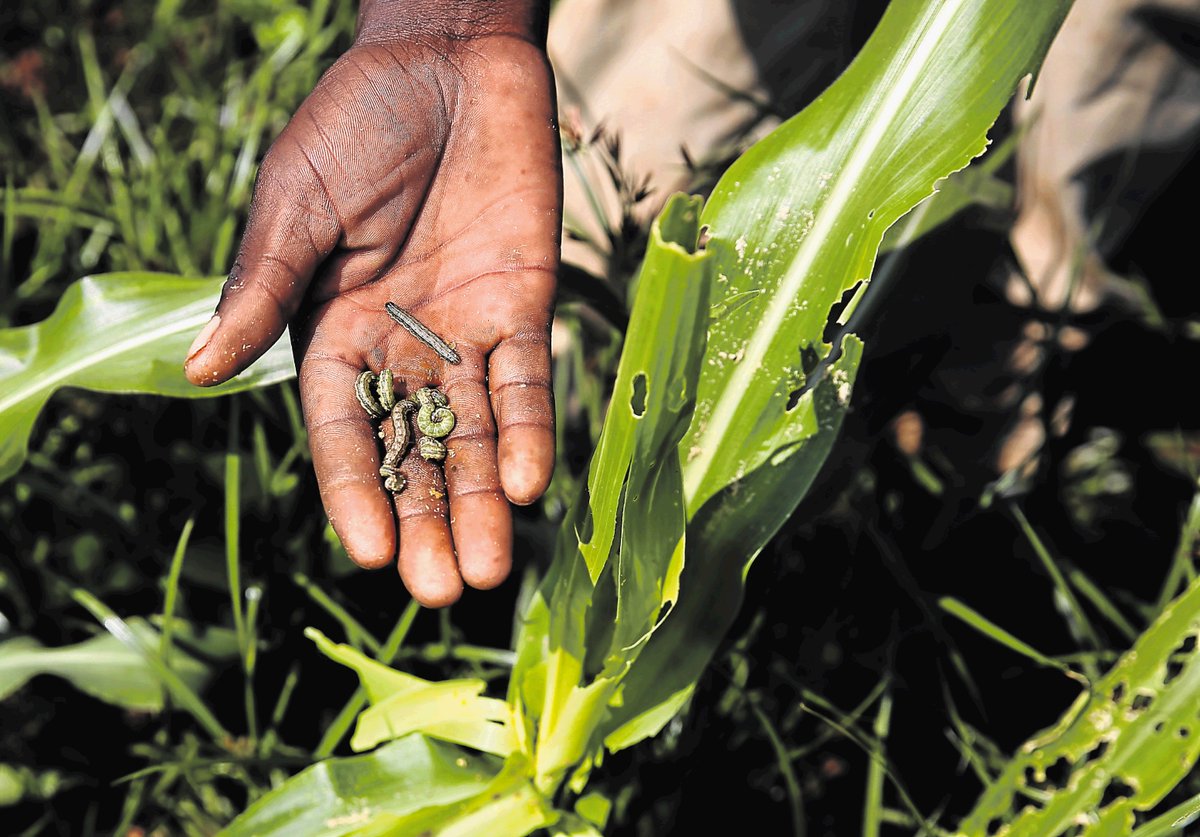
Alien animals and plants are on the rise in Africa, devastating crops

Alien species, intentionally or accidentally transported by humans between continents to regions where they are not native, are on the rise in Africa.
Once out of a briefcase after a long-haul flight, or out the door of an international train, their spread within continents can be rapid – affecting the ecology as well as societies and the economy.
One such alien-species that has caused incredible concern to many countries in Africa is the armyworm. Imported from the Americas, the caterpillar has spread throughout the continent and ruined farmers’ crops – leaving government officials scratching their heads on how best to stop the problem.
But given the amount of goods and people that are transported to-and-fro daily, reducing the spread of these alien species is incredibly challenging.
Reports suggest that the spread of alien species within Africa is increasing. Since 2000, more alien insect pests of eucalyptus trees have spread to other African countries from South Africa, than have been introduce from other continents. Experts are calling on governments to manage the spread of these species through co-operation and communication.
In history, alien plants and animals that have been introduced to the continent from outer-regions have managed to spread from country to country – often having devastating effects.
The maize-eating beetle – larger grain borer beetle – was accidentally introduced to Tanzania and Togo off the back of imported grain from Central America in 1981. It took only 20 years for the beetle to migrate to the wider-continent, and can now be found in South Africa.
The beetle has attacked crops, much like the armyworm, ruining the food security and the livelihoods of many farmers in the effected regions.
But experts point out that alien species don’t just arrive from abroad. Many that are native to parts of Africa have also spread to countries on the continent where they are not native.
An example is the fish commonly known as the Mozambique tilapia which is native to rivers on the east coast of southern Africa. Fishermen have transported the Mozambique tilapia to other areas and it is now found in river systems in southern and western South Africa and Namibia.
The Mozambique tilapia is a popular species for fishing but it can pose a threat to native fish and has been responsible for the disappearance of native species in some regions.
Unfortunately, once a species is introduced to one African country, it’s highly likely that it will spread to others on the continent due to fragile border checks.
Experts suggest that introducing biosecurity systems at country borders could help reduce the amount of alien species slipping into the continent.
Biosecurity systems are currently used by Australia and New Zealand, countries renowned for being tight on importing alien species.
Overall, experts say that the best countries can do to mitigate the threat of alien species invasion, is through close co-operation.






